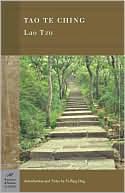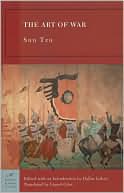Tao Te Ching by Lao Tzu & The Art of War by Sun Tzu
When I decided to read these two books I somehow imagined that they would be polar opposites. One a contemplative, passive book, the other a manual describing the active and aggressive world of medieval Chinese warfare. However, after reading them I found that they are actually very much drawing on the same view of the world.
Of the two The Art of War was different then I thought it would be. It is really a discussion about how to win without fighting rather than about how to fight. Indeed, Sun Tzu seems to draw upon the philosophical concepts of Taoism for much of his work. One verse from the Tao Te Ching in particular ties in with the Art of War:
The best warrior is never aggressive. The best fighter is never angry. The best tactician does not engage the enemy. The best utilizer of people’s talents places himself below them.
The focus of The Art of War is on strategy and preparation, and in that sense it is a book which is applicable to a wide range of topics, not just war. In fact shortly after finishing the book I wrote a long e-mail to a friend outlining the application of these military strategies to his dating struggles.
There were two particular passages from The Art of War that I found particularly profound:
The general who wins a battle makes many calculations in his temple ere the battle is fought. The general who loses a battle makes but few calculations beforehand. Thus do many calculations lead to victory, and few calculations to defeat; how much more no calculation at all!
To secure ourselves against defeat lies in our own hands, but the opportunity of defeating the enemy is provided by the enemy himself.
The Tao Te Ching is a deeply philosophical book that I don’t think that I will ever fully grasp (the only book in my experience that I can compare it to is Isaiah). However, the things which I did understand were very profound, and I would highly recommend that anybody who has the inclination to contemplation and reflection should try and read this book. I have to admit that there are quite a few notes referring to passages in 1st and 2nd Nephi!
There is much wisdom to be found in this book. The most important them that I picked up from the Tao Te Ching was the emphasis on humility.
Standing on tiptoe, you are unsteady. Straddle-legged, you cannot go. If you show yourself, you will not be seen. If you affirm yourself, you will not shine. If you boast, you will have no merit. If you promote yourself, you will have no success.
I don’t think that everybody would enjoy these books as much as I did, but I am pretty sure that anybody who read them would benefit from doing so.


4 comments:
Wise move to compare the Art of War to dating... its a battle out there. As for all this Isaiah talk, if you don't understand the book, what hope do the rest of us lesser mortals have? :)
Cool! Maybe I should read those books too sometime!!!
美女聊天 , 美女聊天 , 美女聊天 , 美女聊天 , 美女聊天 , 美女聊天 , 美女聊天 , 美女聊天 , 美女聊天 , 美女聊天
妹妹直播聊天室 , 85cc視訊女孩 , 在線免費觀看裸聊 , 影音視訊免費聊天室 , 免費視訊聊天室 , 妹妹聊聊天室 , 午夜三色聊吧 , 美女視訊 , 人人碰免費視頻聊天室 , 視訊聊天交友
Post a Comment